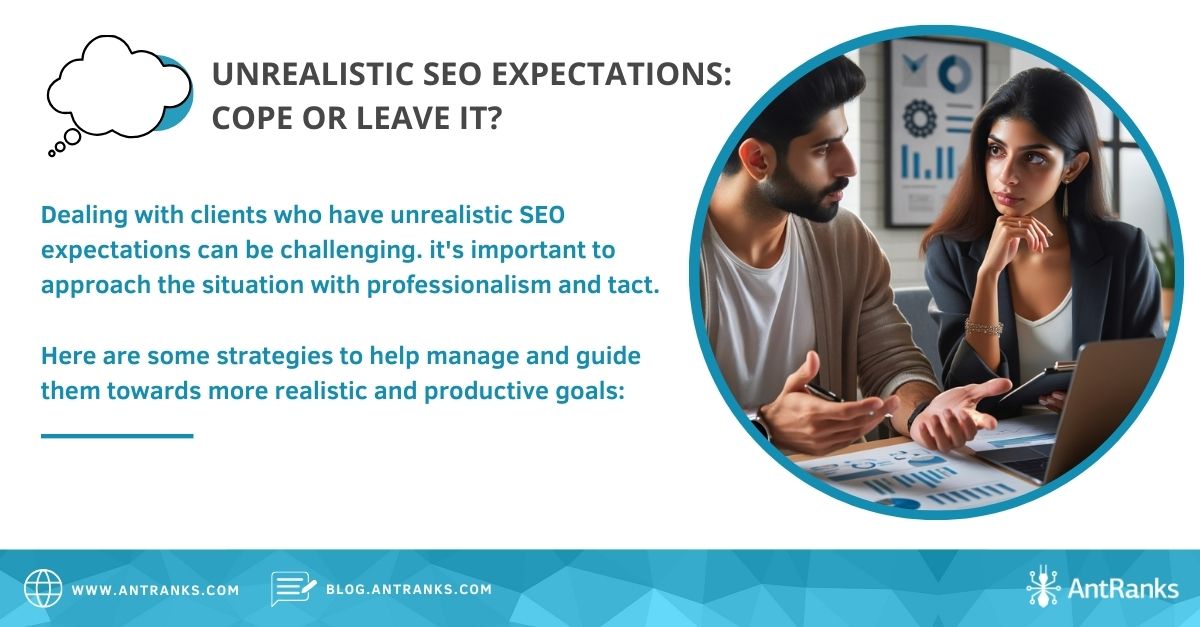
Dealing with clients who have unrealistic SEO expectations can be challenging. Here are some strategies to help manage and guide them towards more realistic and productive goals:
-
Educate Your Clients: Start by explaining how SEO works, including the time it takes to see results, the unpredictability of search engine algorithms, and the importance of quality content over quick fixes. Use data and case studies to illustrate your points.
-
Set Clear, Realistic Goals: Work with your clients to establish achievable objectives based on their industry, competition, and current website status. Ensure these goals are measurable so you can track and report progress.
-
Communicate Regularly and Transparently: Keep your clients in the loop with regular updates on what you're doing and why. If there are setbacks or changes in strategy, explain the reasoning behind them. Consistent communication helps build trust and manage expectations.
-
Showcase Small Wins: SEO improvements can take time to significantly impact rankings and traffic. Highlight short-term wins and progress, such as improved site speed, better content quality, or increased engagement on specific pages, to show the value of your work.
-
Use Data to Make Your Case: Leverage analytics and reporting tools like AntRanks to show how your SEO efforts are impacting their site. Use data to illustrate what's working, what's not, and how you're adjusting strategies accordingly.
-
Manage Expectations About the SEO Process: Clarify that SEO is a long-term strategy and that quick fixes can lead to penalties by search engines. Emphasize the importance of adhering to best practices for sustainable growth.
-
Explain the Role of Content: Ensure your clients understand that high-quality, relevant content is key to SEO success. Encourage them to invest in content creation as part of their SEO strategy.
-
Highlight the Importance of Adaptability: Search engine algorithms are constantly changing. Stress the need to be flexible and adapt strategies as needed, based on performance data and changes in SEO best practices.
-
Educate About the Competitive Landscape: Provide insights into how their competitors are performing in search. This can help set realistic expectations and motivate clients to invest appropriately in their SEO efforts.
-
Set Boundaries: Be clear about what is achievable within their budget and timeframe and what isn't. It's better to be upfront about limitations than to overpromise and underdeliver.
-
Offer Alternatives: If certain SEO goals are not achievable in the short term, suggest alternative strategies to improve their online presence, such as PPC (Pay Per Click) advertising, social media marketing, or email marketing.
-
Build a Trusting Relationship: Ultimately, managing expectations is about building a relationship based on trust and mutual respect. Be honest, approachable, and committed to their success.
By taking these steps, you can help your clients have a more realistic understanding of what SEO can achieve for them and how they can contribute to the process. This approach not only helps in managing their expectations but also sets the stage for a more successful and collaborative partnership.
What will you add to this list? What is your favorite set of strategies?
